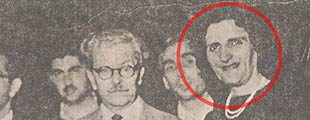Cohen’s role as a spy was not just about gathering information; it was about influencing key players in Syria’s military and political establishment. He was able to make friends with high-ranking officials, including members of the Syrian army, and at one point, he was even considered for a high position in the government. Some reports suggest that Cohen developed a close friendship with Amin al-Hafiz, who would later become the president of Syria. However, Hafiz himself denied this relationship. Nonetheless, Cohen’s role in Syria’s military operations remained significant, and his ability to relay sensitive information about Syria’s defense strategies was invaluable.
One of Cohen’s most crucial contributions to Israeli intelligence came through his discovery of Syria’s multi-layered defense plan. The Israeli military was initially under the impression that Syria’s defense was only a single layer. Cohen’s intelligence revealed that Syria was building a more complex and multi-tiered defense system, which allowed the Israeli forces to adjust their strategy accordingly. This intelligence would later prove essential during the Six-Day War, where Israel’s ability to act swiftly and decisively was a result of the advanced knowledge Cohen had provided.
Beyond his intelligence work, Cohen played a key role in identifying vulnerable points in Syria’s military infrastructure. One of the most daring operations he conducted was during a visit to the Golan Heights, where he managed to gather critical information about Syria’s military positions. Cohen is said to have planted trees near the positions of Syrian soldiers, which would later become targets for Israeli forces. His information about Syria’s southern defenses, including photographs and sketches, also provided Israel with valuable insights into the geographical layout of the region.

